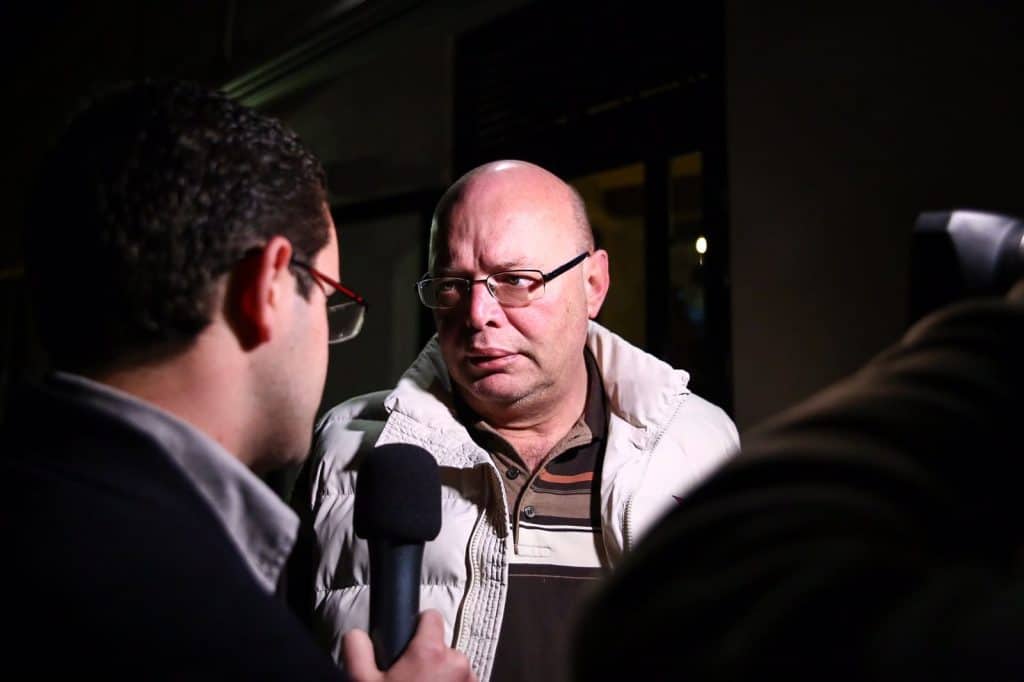There’s one thing I still fail to understand here with all the talk of magisterial inquiries. Where in the world do the suspects define when and to what extent they are going to be investigated?
Look at this video of a One TV journalist challenging Adrian Delia to call for a magisterial inquiry into the allegation contained in an FIAU report we have not seen that supposedly says Adrian Delia is suspected of money laundering for a Soho prostitution racket.
She’s repeating what Joseph Muscat said a few days back.
Adrian Delia reminds that he did call for a Magisterial inquiry. In its report Times of Malta clarifies of course that Adrian Delia is being economical with the truth in his response. That inquiry he speaks of is investigating Adrian Delia’s allegation that his signature on the supposed evidence against him had been forged. It is not investigating whether he laundered money paid by punters of sex-slaves in central London.
What is happening, therefore, is an investigation into whether the evidence that might be useful in any possible investigation into whether he laundered money or not is genuine.
I’m not indulging in sophistry here. Even allowing for the possibility that Adrian Delia’s allegation that the evidence against him that he has been shown is fraudulent is true, that in itself does not close the matter on whether it is true he laundered money. Only an investigation can determine what other, genuine, evidence exists that might prove it.
So if I kill someone and two witnesses see me do it, while a third witness who was not there but wants to see me punished lies about seeing me kill someone, I am not automatically exonerated if the third witness is caught lying.
Of course, an investigation into the lies of that third witness is desirable. But it should not come in the way of determining my guilt on the back of the evidence given by the other two witnesses.
But really things are even messier than that. When Simon Busuttil asked Magistrates to investigate the Panama Papers, the Criminal Appeals Court threw out his request saying he had no legal standing to make such a request.
But inquiries were started when Joseph Muscat claimed he was falsely — as he says — accused of being married to the owner of Egrant and when Adrian Delia says evidence he laundered money for a Soho brothel-keeper was forged — as he says.
Judging by that record it seems that the only people with legal standing to ask for an inquiry into an alleged crime are the people accused of having committed it.
You’re accused of taking bribes from Azerbaijan or of washing money for a pimp and the Magistrates clear their diaries to investigate your claim that you’re being falsely accused.
I’m sorry but isn’t this all a bit upside down?
Are the only investigations that happen here, when politicians are involved, an exercise in negation rather than a process of affirmative verification of allegations of wrongdoing?
How is it that the suspects get to decide when and if and how and to what extent their affairs are investigated?

Why is it even Adrian Delia being asked if he would take up the challenge of calling for himself to be investigated? What is this, the Middle Ages? Are we going to ask him to run the gauntlet to prove his innocence? Or should we perhaps tie him to a chair and throw him in a torrent? If he drowns, he goes to heaven; if he lives, we burn him as a witch.
Those journalists should be chasing Lawrence Cutajar in some roadside diner, presumably while Inter is due to play again, and shove a camera in his face to ask him what he’s doing about that FIAU report into Adrian Delia’s murky past. Lawrence Cutajar is the one paid to investigate criminals, even alleged criminals in sharp suits.
It has come to this. We have given up on the police to such an extent that now we chase alleged criminals to ask them if they would prithee please with sugar on top put the fucking handcuffs on themselves.